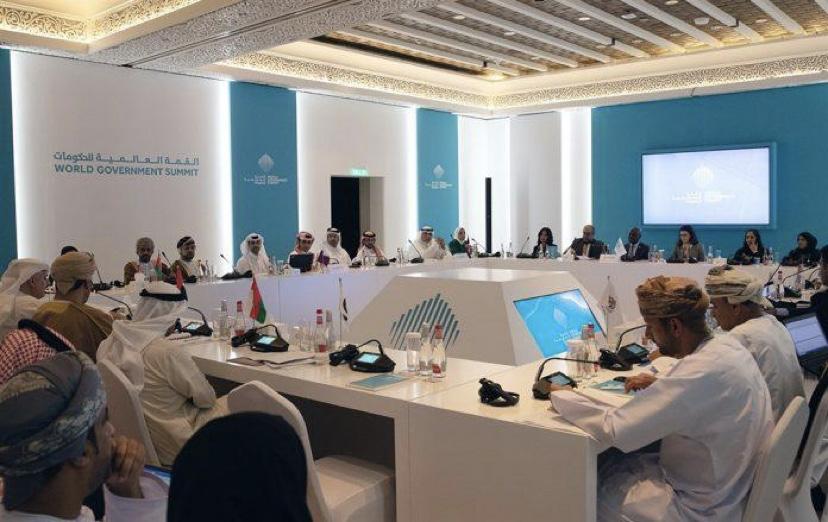
2 minute read
GCC Labour Ministers Meet at World Government Summit
2023 Dubai
GCC Labour Ministers discuss latest regional & global developments, under the theme, “Shaping future governments.”
Advertisement
His Excellency Dr Abdulrahman
Al Awar, Minister of Human Resources and Emiratisation, thanked the attendees for their active participation in the meeting, which discussed aspects that intersect with the objectives of the summit, including exploring prospects for the future of government work in preparation for facing the changes imposed by technology and new business models, preparing the workforce in the region of the post-oil era and the changes it imposes on the reality of education and employment, and the growing importance of entrepreneurship and the skills that Gulf youth need to acquire in order to compete in the local labour markets.
During the meeting, H.E. Dr Mahad Saeed Ba’owain, Minister of Labour of Oman, said that the brotherly relations among the GCC countries require strengthening the cooperation bonds to face the challenges facing the region and the world, which are reflected in the labour markets in the world.
The meeting reviewed issues affecting employment and shaping the direction of national labour and employment policies, the latest developments in the Gulf labour markets, technical cooperation programs between the GCC countries, as well as opportunities and prospects for enhancing cooperation between the GCC countries and the ILO, as well as opportunities to increase the employment of Gulf skills.
The meeting reviewed the UAE’s efforts in developing labour market legislation to guarantee the rights of both parties engaged in the work relationship in a balanced manner and providing a job safety net for workers in the labour market in parallel with the packages of government support aiming at developing the sectors of the future economy.
The meeting also discussed how this can affect the rates of national economic growth in line with the impact of the new legislation, which included developing and updating about 40 laws. It touched upon future jobs and the skills that should be acquired by the workforce, as well as the productivity of the labour market, the tools and mechanisms used to measure and improve them, and the economic, political, and technological changes and their impact on jobs.
H.E. Al Awar highlighted the effects of climate change on labour and development issues in the least developed countries, and the UAE’s preparations to host the 28th edition of the Conference of the Parties to the United Nations Framework Convention on Climate Change (COP28) in December 2023, which eyes understanding the impact of climate change on markets and the labour migration rates globally.
The meeting also discussed the importance of the participation of the ILO and all members of the global multilateral system in building partnerships and enriching the strategic efforts aimed at redistributing production factors in the least developed countries to the highest productive activities, and the need to make efforts to enhance the global development process and support the achievement of sustainable development goals to meet the challenges facing the world.










